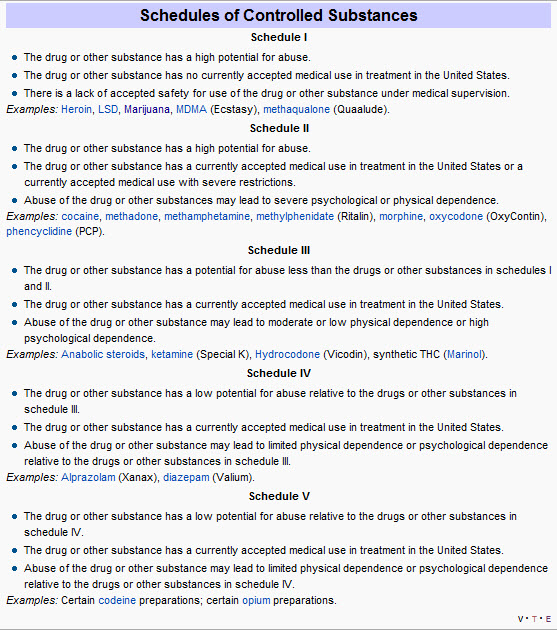Posted On: 12/19/2013 6:55:09 PM
Post# of 36729
Americans for Safe Access (ASA) -- which took great pleaasure in announcing (on December 10, 2013) that the American Herbal Pharmacopoeia (AHP) had published "the first of a two-part Cannabis monograph that classifies cannabis (marijuana) as a botanical medicine, alongside many other widely accepted Complementary and alternative Medicines"-- have reason to be very happy with this development.
"Americans for Safe Access, a medical marijuana advocacy organization, sued the Drug Enforcement Administration (DEA) on July 8, 2011 after it denied an Oct. 9, 2002 petition by the Coalition for Rescheduling Cannabis (CRC) to reschedule marijuana."
That ASA case proceeded all the way to the US Supreme Court -- which on October 7, 2013 -- declined to hear an appeal of the D.C. Circuit Court of Appeals decision not to overrule the DEA's assignment of cannabis as Schedule 1 drug.
Joe Elford, lead attorney on the case for Americans for Safe Access, told Law360 that the Supreme Court's denial of certiorari was in line with its reluctance to overturn lower court and administrative decisions on medical marijuana. "It's disappointing, but not altogether surprising," he said.
The D.C. District Court judges were caught in a Catch-22. "They did not dispute that 'marijuana could have some medical benefits.' but "they were not willing to overrule the DEA because they had not seen large 'well-controlled studies' that proved the medical value of marijuana."
"We're stuck in a Catch-22 – the DEA is saying that marijuana needs FDA approval to be removed from Schedule I, but at the same time they are obstructing that very research," said Tamar Todd, senior staff attorney for the Drug Policy Alliance. "While there is a plethora of scientific evidence establishing marijuana's safety and efficacy, the specific clinical trials necessary to gain FDA approval have long been obstructed by the federal government itself,"
One wonders if the ASA might have fared better in the courts if they could have handed the judges the new AHP two-part "Cannabis monograph that was reviewed by the world's leading researchers and represents one of the most comprehensive and critically reviewed documents on cannabis in recent times. Much of the information was developed in collaboration with researchers at the University of Mississippi under the guidance of Dr. Mahmoud ElSohly, who oversees the only federally legal source of medical marijuana in the U.S."
The absurdity of the DEA Schedule 1 class for cannabis is shown in this chart. Obviously, there are non-medical, non-health factors at play in their rationale --- like money, power and control, the usual three suspects in political matters. (There are moves afoot in Congress to change the classification.)

"Americans for Safe Access, a medical marijuana advocacy organization, sued the Drug Enforcement Administration (DEA) on July 8, 2011 after it denied an Oct. 9, 2002 petition by the Coalition for Rescheduling Cannabis (CRC) to reschedule marijuana."
That ASA case proceeded all the way to the US Supreme Court -- which on October 7, 2013 -- declined to hear an appeal of the D.C. Circuit Court of Appeals decision not to overrule the DEA's assignment of cannabis as Schedule 1 drug.
Joe Elford, lead attorney on the case for Americans for Safe Access, told Law360 that the Supreme Court's denial of certiorari was in line with its reluctance to overturn lower court and administrative decisions on medical marijuana. "It's disappointing, but not altogether surprising," he said.
The D.C. District Court judges were caught in a Catch-22. "They did not dispute that 'marijuana could have some medical benefits.' but "they were not willing to overrule the DEA because they had not seen large 'well-controlled studies' that proved the medical value of marijuana."
"We're stuck in a Catch-22 – the DEA is saying that marijuana needs FDA approval to be removed from Schedule I, but at the same time they are obstructing that very research," said Tamar Todd, senior staff attorney for the Drug Policy Alliance. "While there is a plethora of scientific evidence establishing marijuana's safety and efficacy, the specific clinical trials necessary to gain FDA approval have long been obstructed by the federal government itself,"
One wonders if the ASA might have fared better in the courts if they could have handed the judges the new AHP two-part "Cannabis monograph that was reviewed by the world's leading researchers and represents one of the most comprehensive and critically reviewed documents on cannabis in recent times. Much of the information was developed in collaboration with researchers at the University of Mississippi under the guidance of Dr. Mahmoud ElSohly, who oversees the only federally legal source of medical marijuana in the U.S."
The absurdity of the DEA Schedule 1 class for cannabis is shown in this chart. Obviously, there are non-medical, non-health factors at play in their rationale --- like money, power and control, the usual three suspects in political matters. (There are moves afoot in Congress to change the classification.)

